Hyundai IONIQ 5 vs VW Passat – Which model is better for everyday use?
Both models have their strengths – but which one suits you more?
Compare performance, efficiency, price and space directly: Hyundai IONIQ 5 or VW Passat?
Costs and Efficiency:
Looking at overall running costs, both models reveal some interesting differences in everyday economy.
VW Passat has a barely noticeable advantage in terms of price – it starts at 35700 £, while the Hyundai IONIQ 5 costs 38500 £. That’s a price difference of around 2751 £.
As for range, the Hyundai IONIQ 5 performs clearly better – achieving up to 570 km, about 435 km more than the VW Passat.
Engine and Performance:
Under the bonnet, it becomes clear which model is tuned for sportiness and which one takes the lead when you hit the accelerator.
When it comes to engine power, the Hyundai IONIQ 5 has a convincingly edge – offering 650 HP compared to 272 HP. That’s roughly 378 HP more horsepower.
In acceleration from 0 to 100 km/h, the Hyundai IONIQ 5 is convincingly quicker – completing the sprint in 3.50 s, while the VW Passat takes 5.80 s. That’s about 2.30 s faster.
In terms of top speed, the Hyundai IONIQ 5 performs barely noticeable better – reaching 260 km/h, while the VW Passat tops out at 250 km/h. The difference is around 10 km/h.
There’s also a difference in torque: Hyundai IONIQ 5 pulls convincingly stronger with 770 Nm compared to 400 Nm. That’s about 370 Nm difference.
Space and Everyday Use:
Cabin size, boot volume and payload all play a role in everyday practicality. Here, comfort and flexibility make the difference.
Both vehicles offer seating for 5 people.
In curb weight, VW Passat is clearly perceptible lighter – 1573 kg compared to 1955 kg. The difference is around 382 kg.
In terms of boot space, the VW Passat offers noticeable more room – 690 L compared to 520 L. That’s a difference of about 170 L.
In maximum load capacity, the VW Passat performs to a small extent better – up to 1920 L, which is about 340 L more than the Hyundai IONIQ 5.
When it comes to payload, VW Passat slight takes the win – 577 kg compared to 530 kg. That’s a difference of about 47 kg.
Who comes out on top?
Overall, the Hyundai IONIQ 5 shows itself to be dominates this comparison and secures the title of DriveDuel Champion.
It convinces with the more balanced overall package and proves to be the more versatile choice for everyday use.
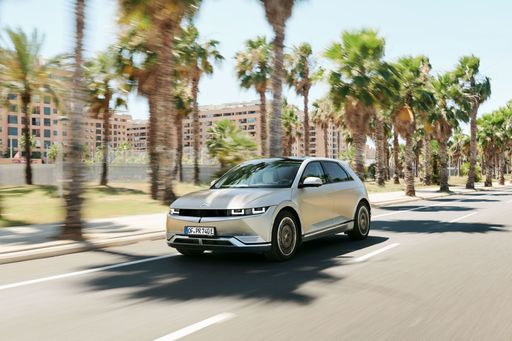 @ Hyundai Motor Company
@ Hyundai Motor Company
Hyundai IONIQ 5
Hyundai IONIQ 5
The Hyundai IONIQ 5 looks like a spaceship that moved into suburbia, pairing bold retro‑futuristic styling with a roomy, cleverly laid-out cabin that makes long trips surprisingly comfortable. Its electric character delivers instant, silky acceleration and low running costs, making it a smart, slightly cheeky pick for buyers who want tech, practicality and personality without the drama.
details @ Hyundai Motor Company
@ Hyundai Motor Company
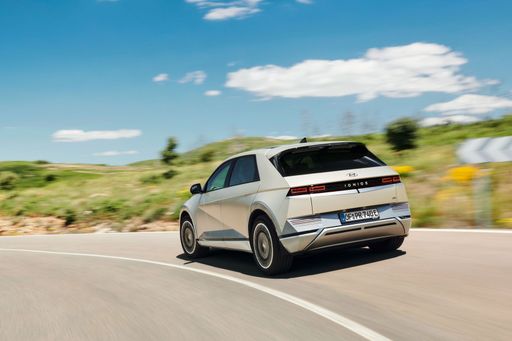 @ Hyundai Motor Company
@ Hyundai Motor Company
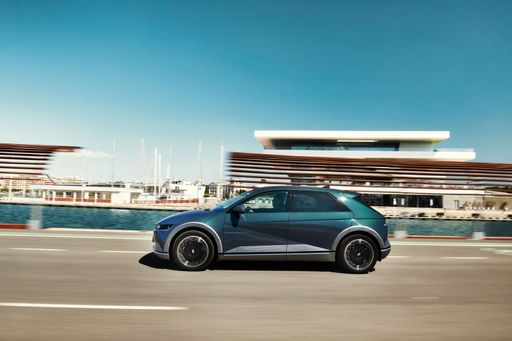 @ Hyundai Motor Company
@ Hyundai Motor Company
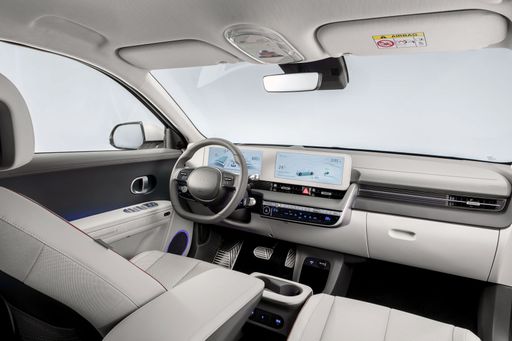 @ Hyundai Motor Company
@ Hyundai Motor Company
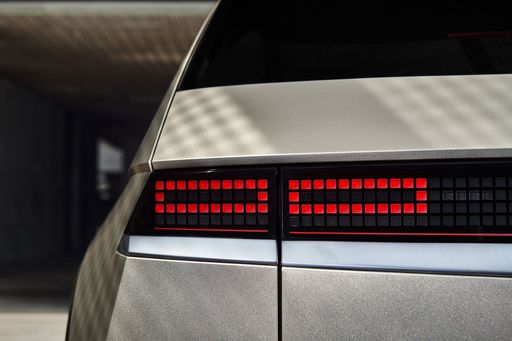 @ Hyundai Motor Company
@ Hyundai Motor Company
VW Passat
The VW Passat is the grown-up family car that gets the basics absolutely right — roomy, comfortable and built to handle weekday commutes and weekend getaways without fuss. It won't set your pulse racing, but its calm composure and sensible packaging make it boring in the best possible way: a dependable, no‑drama choice for buyers who value practicality over flash.
details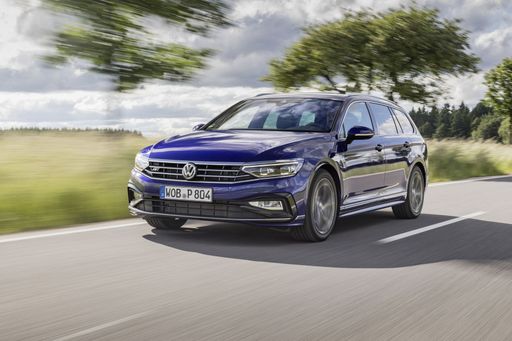 @ Volkswagen AG / VW Media
@ Volkswagen AG / VW Media
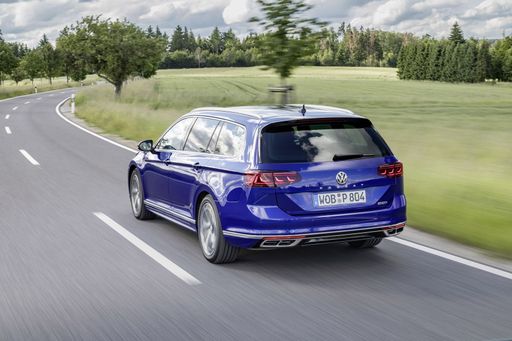 @ Volkswagen AG / VW Media
@ Volkswagen AG / VW Media
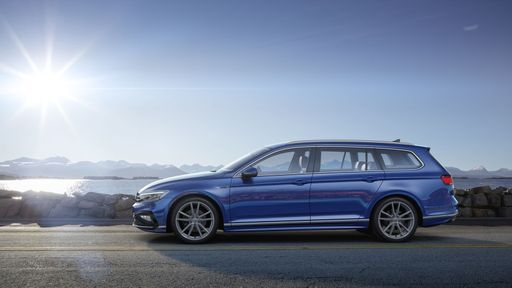 @ Volkswagen AG / VW Media
@ Volkswagen AG / VW Media
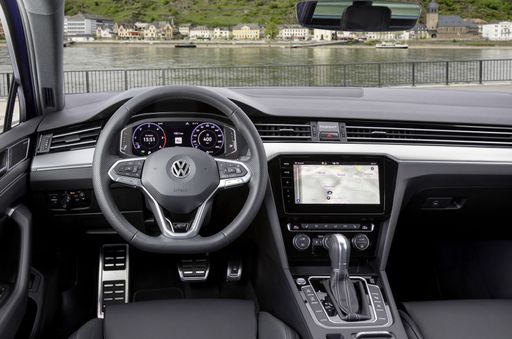 @ Volkswagen AG / VW Media
@ Volkswagen AG / VW Media
 @ Hyundai Motor Company
@ Hyundai Motor Company
|
 @ Volkswagen AG / VW Media
@ Volkswagen AG / VW Media
|
|
|
|
Costs and Consumption |
|
|---|---|
|
Price
38500 - 64200 £
|
Price
35700 - 58500 £
|
|
Consumption L/100km
-
|
Consumption L/100km
1.2 - 8 L
|
|
Consumption kWh/100km
15.6 - 21.2 kWh
|
Consumption kWh/100km
-
|
|
Electric Range
440 - 570 km
|
Electric Range
124 - 135 km
|
|
Battery Capacity
63 - 84 kWh
|
Battery Capacity
19.70 kWh
|
|
co2
0 g/km
|
co2
28 - 181 g/km
|
|
Fuel tank capacity
-
|
Fuel tank capacity
45 - 66 L
|
Dimensions and Body |
|
|---|---|
|
Body Type
SUV
|
Body Type
Estate
|
|
Seats
5
|
Seats
5
|
|
Doors
5
|
Doors
5
|
|
Curb weight
1955 - 2275 kg
|
Curb weight
1573 - 1858 kg
|
|
Trunk capacity
480 - 520 L
|
Trunk capacity
510 - 690 L
|
|
Length
4655 - 4715 mm
|
Length
4917 mm
|
|
Width
1890 - 1940 mm
|
Width
1849 mm
|
|
Height
1585 - 1605 mm
|
Height
1521 mm
|
|
Max trunk capacity
1540 - 1580 L
|
Max trunk capacity
1770 - 1920 L
|
|
Payload
385 - 530 kg
|
Payload
501 - 577 kg
|
Engine and Performance |
|
|---|---|
|
Engine Type
Electric
|
Engine Type
Petrol, Petrol MHEV, Diesel, Plugin Hybrid
|
|
Transmission
Automatic
|
Transmission
Automatic
|
|
Transmission Detail
Reduction Gearbox
|
Transmission Detail
Dual-Clutch Automatic
|
|
Drive Type
Rear-Wheel Drive, All-Wheel Drive
|
Drive Type
All-Wheel Drive, Front-Wheel Drive
|
|
Power HP
170 - 650 HP
|
Power HP
122 - 272 HP
|
|
Acceleration 0-100km/h
3.5 - 8.5 s
|
Acceleration 0-100km/h
5.8 - 10.7 s
|
|
Max Speed
185 - 260 km/h
|
Max Speed
212 - 250 km/h
|
|
Torque
350 - 770 Nm
|
Torque
250 - 400 Nm
|
|
Number of Cylinders
-
|
Number of Cylinders
4
|
|
Power kW
125 - 478 kW
|
Power kW
90 - 200 kW
|
|
Engine capacity
-
|
Engine capacity
1498 - 1984 cm3
|
General |
|
|---|---|
|
Model Year
2024 - 2025
|
Model Year
2024 - 2025
|
|
CO2 Efficiency Class
A
|
CO2 Efficiency Class
G, D, E, B
|
|
Brand
Hyundai
|
Brand
VW
|
What drive types are available for the Hyundai IONIQ 5?
The Hyundai IONIQ 5 is available as Rear-Wheel Drive or All-Wheel Drive.
The prices and data displayed are estimates based on German list prices and may vary by country. This information is not legally binding.
